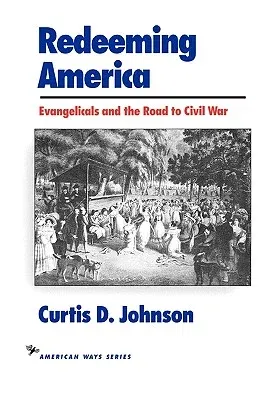In the decades before the Civil War, evangelical Protestants struggled
for the mind and soul of America, seeking to rescue the nation from
Catholics and unbelievers. In this lucid and discerning account of a
major force in the nation's history, Curtis D. Johnson explains why
these battles had immediate as well as far-reaching consequences for
American life and culture. While saving souls, evangelicals also
wrestled with one another over the meaning, practice, and social
implications of their common faith. Prosperous evangelicals from the
more prestigious denominations often tried to impose their understanding
on the social and political order - and order, along with decorum, was
what they craved. Common whites resented upper-class power and elite
meddling in their religious and secular lives; they preferred less
formal and more spontaneous experiences. Black Americans, meanwhile,
forged a liberating faith that gave them a measure of autonomy within
the suffocating confines of slavery. Beyond these internal conflicts,
evangelical forces in the larger culture influenced politics, law,
literacy, social custom, and social organization in ways that are still
with us. Mr. Johnson shows how the evangelical emphasis on Bible reading
encouraged literacy, created support for public education, and led to
the formation of dozens of American colleges. A flood of religious
literature spawned innovative printing and bureaucratic techniques later
adopted by secular presses and organizations. Devotionalism promoted
sentimentality among the American middle classes, and perfectionism had
its secular parallels in diet reform, the water cure, and phrenology.
Evangelical disputes often spread into thepolitical arena and helped
shape partisan arguments. But when large numbers of black and white
evangelicals agreed that God could not bless the nation until slavery
was abolished, evangelicals abandoned their slaveholding
co-religionists, and America moved toward Civil War.

